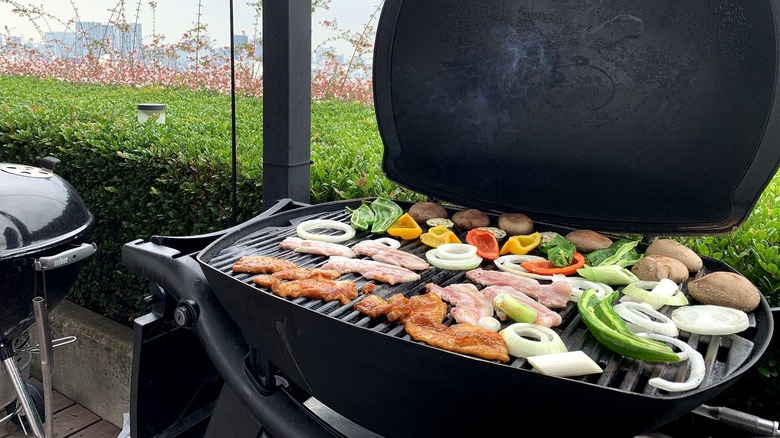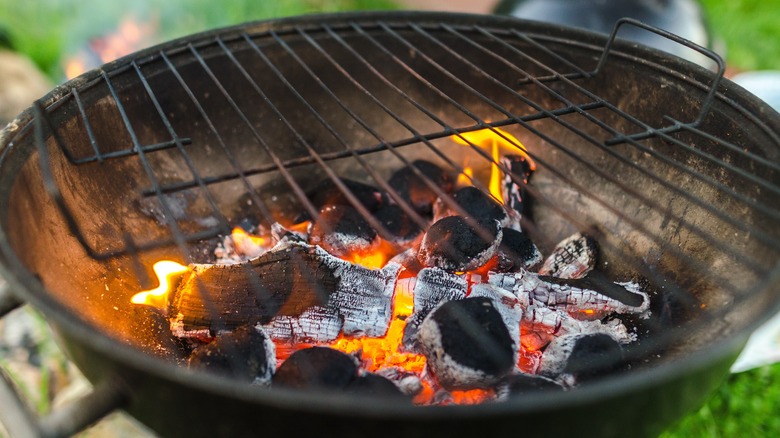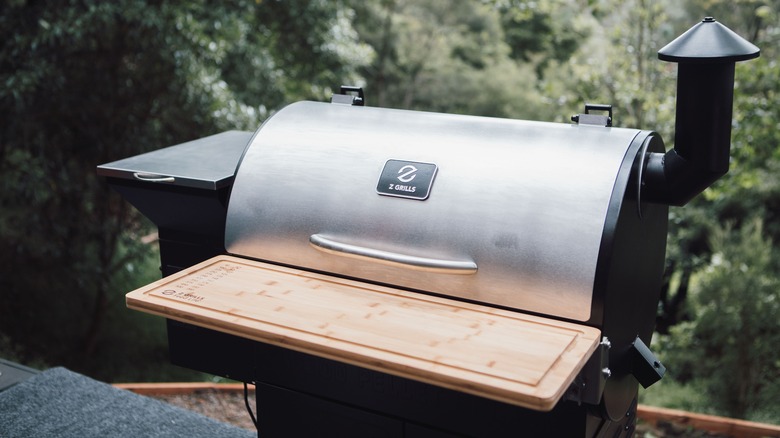The Tell-Tale Sign It's Time To Replace Your Grill
Barbecuing is a quintessential part of warm-weather gatherings, and a well-maintained grill can provide many years of enjoyable cooking experiences. However, like any other appliance, they eventually wear out and must be replaced. A worn-out grill compromises the quality of your cooking and poses several risks that can impact your health, safety, and energy bills.
Knowing when to replace your beloved grill can be challenging, but there are several tell-tale signs that it is run down and needs to be replaced. For instance, rust can weaken its structure and compromise performance, while corrosion can impact food quality and pose a health risk. Additionally, cooking grates and burners can become damaged over time due to heat, moisture, and wear and tear. Therefore, it may be time to seek a replacement if yours are damaged or warped. If you find yourself frequently repairing your grill or replacing its parts, this can also serve as a sign to go to your favorite home improvement store and start shopping. This is because repairs and replacement parts can quickly add up and become more expensive than replacing the grill with a superior model.
Dangers of using an older grill
Grills gradually deteriorate due to exposure to the elements, prolonged high temperatures, and constant use. One of the primary hazards of this is uneven heat distribution. As grills age, their burners and heating elements may become warped or damaged, resulting in uneven heat across the cooking surface. This inconsistency can lead to undercooked or overcooked food, making it difficult to achieve perfect results. Additionally, the uneven heat can increase the risk of foodborne illnesses if your food fails to reach the appropriate temperature necessary to kill bacteria.
As grills wear down, they often develop rust, grease buildup, and weakened components. This combination can contribute to sudden flare-ups when the grease and food residue accumulate on the grates or in the drip pan, igniting and causing bursts of flames. Not only can this ruin your food, but it also poses a significant risk of burns and fires, potentially causing harm to your property and endangering your safety. While it's easy enough to clean your grill, letting these issues remain for too long can create permanent damage. You'll also want to keep an eye out for weakened structural components since these can make the grill more prone to tipping or collapsing.
Choosing the perfect grill for you
When shopping for a new grill, there are several factors to consider. The first consideration is your needs and budget. For instance, a larger grill with more features may be ideal for avid cooks with money to spend. At the same time, a smaller, more budget-friendly model may be ideal for those who occasionally grill and are looking for a great deal. Another factor to consider is the fuel type. Grills can be fueled by propane, natural gas, charcoal, or wood chips and pellets; each fuel type has its benefits and drawbacks. Choosing the right fuel type will depend on your preferences and cooking needs.
Additional features like side burners, rotisseries, sear stations, built-in thermometers, and smoke boxes can help you decide, so consider what would make outdoor cooking more convenient and enjoyable. Finally, check the quality and warranty of the grill. A quality grill should be built with durable materials that withstand the elements and frequent use. Also, don't forget to check the grill's warranty to ensure it covers critical components such as burners, cooking grates, and the ignition system.


